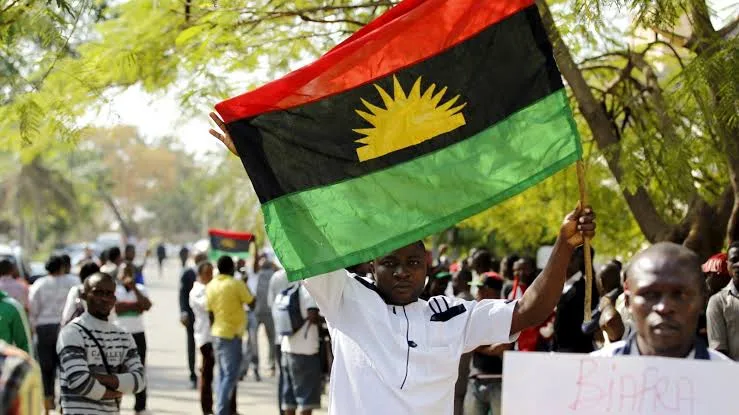The Indigenous People of Biafra (IPOB), through its Directorate of State (DOS), has called for deliberate actions against poverty.
The separatist group was reacting to the death, in Okija, Anambra State, of about 22 women during a stampede at a palliative distribution event organized by philanthropist Obi Jackson.
The group expressed deep sympathy to the people of Okija Community and the entire Igbo nation over the tragic loss of the over 22 women.
In a statement signed by Comrade Emma Powerful, IPOB’s Media and Publicity Secretary, the group described the incident as heartbreaking and emphasized the need for better crowd management and safety protocols during future palliative distributions to prevent such tragedies.
The stampede occurred during the annual food distribution initiative by Obi Jackson, a long-standing tradition aimed at supporting vulnerable families in Okija and surrounding communities during the festive season. IPOB commended Obi Jackson’s consistent philanthropic efforts, stating that his goodwill should not be demonized or discouraged.
However, IPOB pointed out that the weaponization of poverty by Nigerian politicians has created a desperate situation where large crowds gather for relief materials, often without adequate safety measures in place.
“Nigeria, as a failed state, has left citizens in extreme poverty, forcing private individuals like Obi Jackson to step in. The tragic loss of lives is not his fault, but future events must prioritize safety, proper planning, and decentralized distribution methods,” the statement read.
IPOB recommended that future palliative distributions should be decentralized to individual villages rather than organized at a single central venue to prevent overwhelming crowds. They also emphasized the importance of having adequate security and crowd control measures in place during such events.
The group further urged philanthropists to move away from short-term relief initiatives and instead focus on sustainable empowerment programs.
“There is a saying: Teach a man to fish, and he will eat for a lifetime. We must address poverty by empowering people through sustainable agricultural and industrial initiatives,” the statement continued.
IPOB called on wealthy Igbo individuals to provide seedlings for farming, support youth employment, and invest in industries and businesses within the Southeast to create lasting economic opportunities.
IPOB reiterated its stance on activating an Agricultural and Industrial Revolution in the region. They encouraged Igbo investors to relocate their factories, businesses, and agencies back to Alaigbo, creating employment opportunities for the youth and fostering economic independence.
“We must not create a culture of dependency. The Igbo people are known for hard work and resilience. We must rise above this engineered poverty and reclaim our self-sustaining heritage,” the group emphasized.
IPOB extended heartfelt condolences to the families of the victims and pledged to advocate for systemic changes to prevent such tragic incidents in the future.
“We mourn with every family that lost a loved one during the unfortunate stampede. Let this tragedy be a wake-up call for us to rethink our approach to poverty alleviation,” the statement concluded.
The group called on all stakeholders—philanthropists, community leaders, and government agencies—to prioritize sustainable solutions that address the root causes of poverty in the region.

